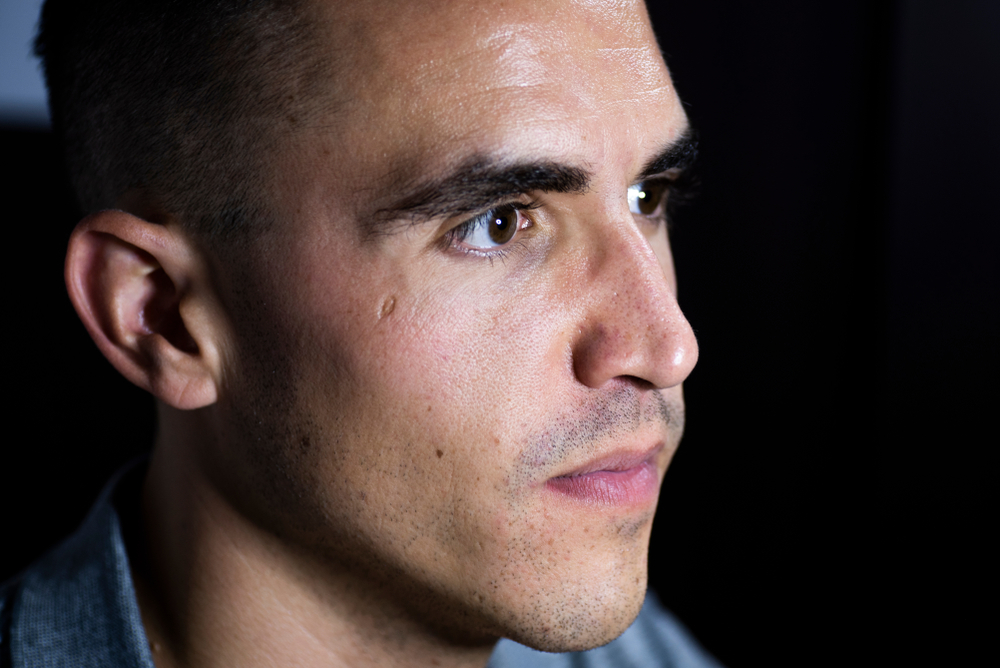Ever met someone who seems perpetually chill, like they’ve got an endless supply of inner peace? They’re the ones who never seem to get flustered, stressed, or even mildly irritated. But underneath that calm exterior, a whole lot might be going on. These folks are masters at hiding their emotions, and here are some of their telltale habits.
1. They’re pros at deflecting personal questions.

Ask them how they’re doing, and you’ll get a vague “I’m fine” or a quick change of subject. They’re not trying to be rude; they’ve just mastered the art of steering conversations away from themselves. They might even turn the question around on you, asking about your day before you can pry any deeper. Of course, as Medical News Today notes, there are risks to bottling up feelings, but that’s just how they operate.
2. Their facial expressions are a carefully curated mask.

You’ll rarely catch them with an unguarded look of anger, sadness, or even pure joy. Their smiles might seem a bit too practiced, their frowns a tad too subtle. It’s like they have an internal filter that smooths out any extreme emotions before they reach their face.
3. They’re experts at changing the subject.

If a conversation starts veering towards something personal or emotionally charged, they’ll subtly steer it in a different direction. They might crack a joke, bring up a completely unrelated topic, or even excuse themselves to grab a drink. It’s like they have an invisible shield that deflects any attempts to get too close.
4. They rarely complain or vent.

Even when they’re going through a tough time, they keep their struggles to themselves. They might say they’re “dealing with some stuff” but offer no further details. They believe that burdening others with their problems is unnecessary and that they’re better off handling things on their own.
5. They’re masters of the neutral response.

“Interesting,” “That’s nice,” “Good to know” — these are their go-to phrases. They avoid making any strong statements or revealing their true opinions. They prefer to keep things light and breezy, even when discussing serious topics.
6. They’re always “busy.”

They have a packed schedule filled with work, hobbies, and social commitments. This isn’t just about being productive; it’s a way to avoid downtime, which could lead to introspection and unwanted emotions bubbling up. They prefer to keep their minds occupied and their feelings at bay.
7. They have a carefully crafted public persona.

They present themselves as confident, capable, and always in control. They might share curated snippets of their lives on social media, showcasing their successes and positive experiences. This carefully constructed image serves as a protective barrier, keeping their true emotions hidden from the world.
8. They have a few trusted confidants.

While they might not share their feelings with just anyone, they do have a select few people they can open up to. These are the individuals who have earned their trust and respect. These confidants provide a safe space for them to let their guard down and express their true emotions, without fear of judgment or ridicule.
9. They use humor as a shield.

They’re quick with a witty remark or a self-deprecating joke, even when they’re feeling down. Humor serves as a defense mechanism, deflecting attention away from their true feelings and keeping the mood light. It’s a way to connect with others without having to reveal too much about themselves.
10. They’re masters of compartmentalization.

They can separate their emotions from their actions, making decisions based on logic rather than feelings. They might be going through a personal crisis, but you’d never know it from their professional demeanor. This ability to compartmentalize allows them to function effectively in different areas of their lives, even when their emotions are in turmoil.
11. They avoid conflict at all costs.

They’d rather walk away from a disagreement than engage in a heated argument. They believe that conflict is unproductive and that it’s better to maintain harmony, even if it means sacrificing their own needs or opinions. This avoidance of conflict can sometimes lead to resentment and unresolved issues.
12. They’re incredibly self-aware.

They’re constantly monitoring their own thoughts and feelings, making sure they don’t slip up and reveal too much. They might even practice their facial expressions and tone of voice in front of a mirror. This hyper-awareness of their own emotions allows them to maintain a carefully constructed facade.
13. They’re good listeners, but rarely share their own experiences.

They’ll lend a sympathetic ear to your problems, offering support and advice. But when it comes to their own struggles, they’ll remain tight-lipped. They’re more comfortable being the listener than the one being heard. This one-sided dynamic can sometimes lead to feelings of isolation and loneliness.
14. They’re often described as “mysterious” or “hard to read.”

People are drawn to their enigmatic aura, but they can also be frustrating to those who crave deeper connections. Their emotional unavailability can create a sense of distance in relationships, making it difficult for others to truly know them.
15. They’re not necessarily unhappy.

Just because they hide their emotions doesn’t mean they’re constantly miserable. They might have found a way to cope with their feelings that works for them. They might prefer to process their emotions privately, rather than burdening others with them. While their approach might not be for everyone, it’s important to respect their boundaries and understand that everyone has different ways of dealing with their emotions.
Enjoy this piece? Give it a like and follow PsychLove on MSN for more!



